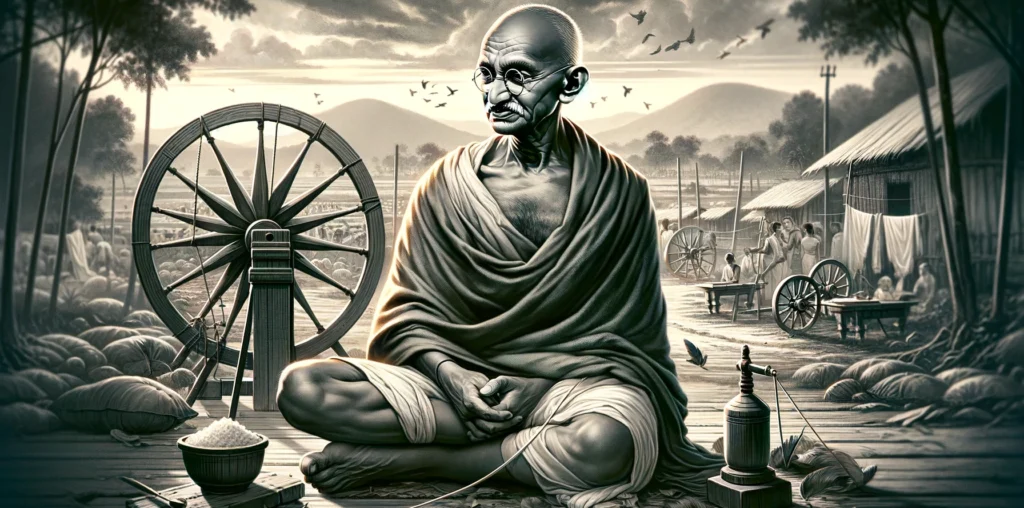The Life and Legacy of Mahatma Gandhi
Mahatma Gandhi, born in 1869, was a remarkable figure in Indian history. He was not only a lawyer, but also an anti-colonial nationalist and political ethicist. Gandhi is best known for his use of nonviolent resistance to lead the successful campaign for India’s independence from British rule. His teachings and actions have inspired movements for civil rights and freedom across the world.
Early Life and Education
Gandhi was born in Porbandar, a coastal town in present-day Gujarat, India. He came from a modest background, and his father served as the diwan (chief minister) of Porbandar. Gandhi was a shy and introverted child, but his deep sense of justice and empathy for others became evident at an early age.
After completing his early education in India, Gandhi traveled to London in 1888 to study law. He was called to the bar in 1891 and returned to India to practice law. However, his experiences in London exposed him to the ideas of freedom, equality, and justice, which would shape his future activism.
The Birth of Satyagraha
Gandhi’s journey as a political activist began in South Africa, where he lived and worked from 1893 to 1914. During his time there, he faced racial discrimination and witnessed the injustices faced by the Indian community. These experiences ignited his passion for social justice and led him to develop his philosophy of Satyagraha.
Satyagraha, meaning “truth-force” or “soul-force,” is a nonviolent resistance technique based on the principles of truth and nonviolence. Gandhi believed that individuals could resist oppression through peaceful means, appealing to the moral conscience of their oppressors. This philosophy became the cornerstone of his future campaigns for independence.
The Fight for Indian Independence
Upon his return to India in 1915, Gandhi wasted no time in joining the struggle for Indian independence. He organized various nonviolent protests, strikes, and boycotts against British rule. One of his most significant campaigns was the Salt March in 1930, where thousands of Indians marched to the Arabian Sea to collect salt, in defiance of the British salt monopoly.
Gandhi’s nonviolent approach to resistance gained him widespread popularity and support from people across India. He encouraged Indians to embrace their cultural heritage, promote self-reliance, and reject British-imposed laws and institutions. His efforts united people from different backgrounds and religions, creating a powerful force against colonial rule.
Inspiring Movements for Civil Rights and Freedom
Gandhi’s influence extended far beyond India’s borders. His teachings and methods of nonviolent resistance inspired numerous civil rights and freedom movements around the world. Leaders such as Martin Luther King Jr., Nelson Mandela, and Aung San Suu Kyi drew inspiration from Gandhi’s philosophy and applied it to their own struggles for justice and equality.
Gandhi’s emphasis on peaceful resistance and his unwavering commitment to truth and justice continue to resonate with people today. His legacy serves as a reminder that change can be achieved through nonviolence and that individuals have the power to make a difference, even in the face of adversity.
Conclusion
Mahatma Gandhi’s life and work have left an indelible mark on the world. His use of nonviolent resistance to achieve India’s independence from British rule and his teachings on truth and nonviolence continue to inspire generations. Gandhi’s legacy serves as a reminder of the power of peaceful activism and the importance of fighting for justice and equality. His impact extends far beyond his time, making him a true icon of the 20th century.
The post The Life and Legacy of Mahatma Gandhi: A Journey of Nonviolent Resistance and Inspiration first appeared on WORLD LEGACY.

